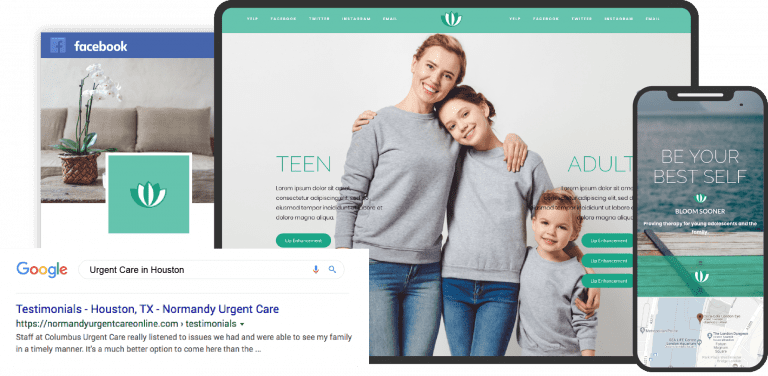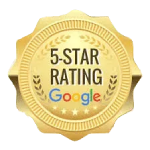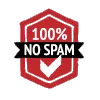
Regardless of your industry, content calendars are some of the best tools today for staying organized and consistent with your content. These calendars help lay out your content’s plans and goals, helping you stay on track and maintain a consistent posting schedule. Creating a content calendar, however, can be challenging, especially if you intend on planning a full year of content or want to start revamping your content mid-year. Then, a content calendar could be the tool you need to help enhance your blog’s visibility and reach.
How Do Content Calendars Work?
Content calendars work to schedule and plan your content, giving you a clear preview of what you intend to post on your blogs, social media, and other platforms throughout the upcoming months. The purpose of a content calendar is consistency – important dates, events, and other shifts in your content can be tracked and planned out through the cooperation of your writers, SEO experts, and digital marketers. If you’re planning out your content by hand, content calendars put all the tools and ideas you need in one place, giving you the autonomy to establish a steady flow of content and topics that pertain to your industry and passions.
The Benefits of Content Calendars And Why They Matter
Content calendars are an excellent way for people in any industry to organize their content; whether you’re starting a new practice, managing a medical blog, or promoting a professional brand of medical products, content calendars enable you to create and distribute the content you have through an efficient system. These tools provide some benefits, including:
- Consistent Scheduling: Content calendars provide an effective way to keep a consistent publishing schedule, which can help build up your audience and keep them engaged with your content.
- Organization: These calendars help provide organization to the large outputs of content you intend to create, and give you clear oversight on how you wish to accomplish your marketing strategies and business goals.
- Alignment With Your Goals: These calendars allow you to track your goals, adjust when necessary, and plan out how best to accomplish your goals as a medical practice.
- Adaptable and Efficient: Most of all, these calendars are adaptable and efficient, as they can be adjusted when necessary to accommodate changes in your marketing strategy and help save time and stress.
How To Begin Setting Up Your Content Calendar
While content calendars can be effective and flexible tools for your goals, for those unfamiliar with the concept, they can be a bit of a learning curve to use. Content calendars are most effective when you deeply understand who your audience is, define the goals of what you intend to focus on, and have a wide selection of content that meets your goals and your audience’s interests.
Defining Your Goals
Whether you want to increase website traffic to your homepage, establish yourself as an authority figure in your field of expertise, or build better brand awareness for your practice, your goals should be SMART:
- Specific: Your goals should be specific, focusing on something more defined, such as increasing website traffic by 30 to 50%. Expectations such as this can help you plan and organize your content better.
- Measurable: Your goal should be trackable. You should be able to track the progress of these goals, such as guest blog reads, social media followers, and new patient recruits.
- Achievable: Your goals should be realistic and attainable, so consider your time, budget, and resources when planning your content calendar.
- Relevant: Relevance refers to how these goals measure up against the broader values of your practice. If you aim to educate people about your services, then your goal should align with that aspiration in some form.
- Time-bound: Most goals should always involve a time frame, especially as resources and time dedicated to these projects can be limiting. Providing a timeframe can help not only provide realistic expectations but also motivation.
Choose Your Content Types and Platforms
Determining the variety of content you plan to produce is also essential. Blog posts, social media posts, newsletters, and other types of content can help determine how you wish to utilize your strategy and amplify your message.
Select the Right Tool For Your Content Planning
There is a wide selection of tools and platforms that can best suit your team’s needs. Depending on the complexity of your goals and strategies, each tool will offer different features to meet those needs.
- Google Sheets: Google Sheets provides a simple, accessible way for teams to cooperate on content strategy and planning. Its familiar format makes it easy to use, allowing multiple people to access and edit in real-time and ensuring that everyone can plan content efficiently.
- WordPress Editorial Calendar: For practice websites hosted on WordPress, the WordPress Editorial Calendar plugin can make content calendar management easy to integrate and use. This plugin allows people to drag and drop posts, edit content directly, and view the status of each post, helping its users manage and schedule their content.
- Trello: Trello provides a system of boards and lists to organize tasks and projects, which can be adapted to content management and scheduling. It requires a bit of a learning curve for new users but can be adapted to large teams through its collaborative features and ability to add detailed tags for deadlines, checklists, and content attachments.
- Notion: Notion combines note-taking, task management, and database tracking in one platform. It’s considered an excellent solution if you’re looking for ways to manage multiple content projects across multiple platforms, adding more depth and flexibility for larger projects.
- Asana: Asana is a sleek, easy-to-use system that can be converted into a content calendar. This allows you to create projects based on the content you wish to produce. It can be used to manage workflow and is also considered an ideal tool for larger practices.
Moving Forward To Schedule and Plan Your Content Calendar

Once you’ve laid the groundwork for your content calendar, it’s time to dive deeper into scheduling and planning. Remember, a content calendar is not just a set-it-and-forget-it tool; it’s dynamic, constantly evolving based on your audience’s needs, your content’s performance, and the shifting landscape of the healthcare industry. To keep your content strategy sharp and effective, here are some key strategies to consider moving forward:
Regular Content Audits
Make it a habit to review your published content periodically. This involves evaluating which pieces are performing well and which aren’t and identifying any gaps in your content. A regular audit helps you understand what resonates with your audience, allowing you to replicate successful strategies and tweak or remove what’s not working.
Stay Updated With Industry Trends
The healthcare field is constantly changing, with new discoveries, technologies, and trends emerging. Staying informed about these developments can inspire fresh content ideas and ensure your blog remains relevant and authoritative. Incorporate recent studies, news, and innovations into your content plan to keep your audience informed and engaged.
Engage With Your Audience
Engagement is a two-way street. Pay close attention to your readers’ comments, questions, and feedback across all platforms. This direct line of communication offers invaluable insights into your audience’s preferences, questions, and concerns. Use this feedback to adjust your content calendar, focusing more on the topics and formats your audience loves.
Plan for Flexibility
While having a well-structured content calendar is important, leaving room for spontaneity and flexibility is equally crucial. Breaking news, unexpected industry developments, or sudden shifts in public interest can offer opportunities to create timely and relevant content that captures your patient’s attention. Be ready to shuffle your content schedule to accommodate these moments.
Use Analytics for Insight
Analytics tools can offer a wealth of information about how your content is performing. Look at metrics like page views, time spent on a page, and social shares to gauge the impact of your content. This data can help you fine-tune your medical content strategy, focusing on what works best for engaging your audience and driving results.
Collaborate and Brainstorm
Regular brainstorming sessions with your team can generate new content ideas, offer different perspectives, and spark creativity. Collaboration ensures diverse content and keeps your content strategy vibrant and dynamic.
Schedule Regular Updates
As you progress, make it a point to update your content calendar regularly. This doesn’t mean adding new topics and revisiting and revising your strategy based on the latest data and insights. A content calendar that is frequently updated is a powerful tool that keeps your content strategy aligned with your goals and your audience’s needs.
Elevate Your Content Calendar With Optimized360
Navigating the complex world of digital marketing, from content creation to SEO optimization and social media management, can be daunting, and setting up your goals to produce and streamline your content can be a challenge, especially if you are a smaller medical practice just beginning to thrive. At Optimized360, our medical marketers and SEO experts can help boost your online presence by handling your content calendar and helping you reach more patients. Contact Optimized360 today, and start crafting a reachable digital marketing strategy with your medical expertise.















